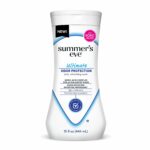Is There Lead In Slow Cookers and Is It Getting Into Your Food?

We greatly appreciate the folks who have brought this issue to our attention in response to our Adventures in Slow Cooking Tip of the Month. So we did some research to help shed some light on this controversial subject. Unfortunately, our research did not reveal any independent peer-reviewed studies that decide the question one way or the other. Here’s what we did find:
Some individuals have taken up the cause and done their own testing. See here for one person who found no lead in the slow cookers tested.
And here’s a link describing another test that did find lead in slow cookers.
Unfortunately, neither study has been rigorously reviewed or published in a journal, so it’s really hard to rely on the results. From what we can tell, there is the possibility that a slow cooker has been made with ceramic glaze containing lead, and if that glaze was improperly fired, that lead could leach into your food. There are FDA standards for the amount of lead allowed in ceramic cookware; unfortunately, lead isn’t banned, it just must be kept to certain low levels. See here for more information from FDA about lead in ceramic cookware.
We entirely understand if this possibility of lead contamination is enough to put you off using a slow cooker. While somewhat less convenient, there are lead-free alternatives to slow cookers – like cast iron dutch ovens or unglazed clay cookers for example, that can achieve the same effect with food, but require a little more maintenance and monitoring during cooking. These are good options that should work with any of the recipes that have been offered up to help create BPA-free alternatives to canned soup.
On the other hand, if you are a dedicated slow cooker looking for a ray of hope, lead-free glazes are available, and some manufacturers are claiming to use them. And this is certainly what we would like to see from all manufacturers since slow cookers do make cooking so darn easy! Manufacturers will only make this change, however, if they see that this issue means a lot to their customers. If you are concerned about the possibility of lead in your slow cooker (or one you want to purchase), we strongly encourage you to call the manufacturer and ask if the glazes they use are lead-free. If they know that you won’t be buying their product (or will be replacing it with something else) due to the lead contamination issue, they will have an incentive to go lead-free.
Another important note: Avoid slow cookers with non-stick coated metal inserts!
Unlike the slow cookers with ceramic liners (discussed above) there are also some slow cookers that come with non-stick coated metal inserts. Several of these are coated with Teflon (or Teflon-like materials). The chemicals used in these non-stick coatings (Perfluoroocatanoic acids or PFOAs) are hazardous, both when heated to high temperatures or if the coating flakes off into your food. With slow cooking the length of time your food is exposed to the non-stick surface is extended, giving more opportunity for your food to get contaminated. For these reasons its best to avoid these types of slow cookers if you choose to slow cook!
Thanks again to all who contacted us with their concerns. We hope this sheds some light (despite a lot of remaining uncertainty) on the topic!






Thanks for the link-back to my post on lead in crock pots. I think it’s great that people are raising awareness of this issue, because the information provided by manufacturers can be confusing and, in some cases, misleading. I love my slow-cooker and was relieved when mine tested negative for lead, but I also think there’s no guarantee that all crock pots are safe just because the few I tested were. The FDA needs tougher regulations on this issue, but until then, consumers have to keep being diligent about the safety of their food, their water, and the materials in their homes.
Pingback : Everything But the Kitchen Sink: 5 Simple Steps to Greener Food Storage and Prep | Laura's "Rules"